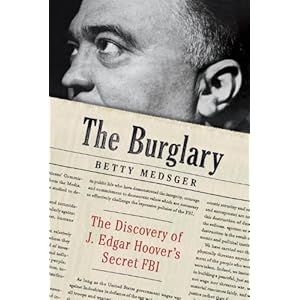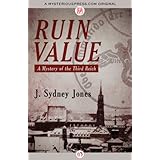
The Burglary: The Discovery of J. Edgar Hoover's Secret FBI is a hefty book that I've been absolutely glued to for the last couple of weeks. I tried to read short mystery novels in between sessions with this one, but couldn't wait to get back to it. My fear that it might be boring couldn't be further from the truth.
Medsger was a reporter for The Washington Post in 1971 when a group of anti-war protesters broke into an FBI regional office in Media, PA, just outside Philadelphia. They took all the files they could, sorted through them over the following weeks, and then released copies of some to various journalists, one of whom was Medsger.
Remind you of something? Edward Snowden and the NSA of course. That made this story even more interesting, and it also made my reaction less predictable. I opposed the war in Vietnam but didn't protest publicly; and I'll admit my decision not to participate in protests was due to fear of the possible consequences.
The eight Media burglars were much braver and more committed. The story of their meticulous planning and carrying out of the break-in is fascinating. They remained quiet about it until 40 years later when most of them consented to telling Medsger their story. In the meantime, they had never contacted each other and the FBI had never discovered who the burglars were. Amazing. Also quite interesting was the effect on the lives of the burglars afterward. They were unique individuals with quite different lives before and after.
The result of the release of files was exposure of FBI tactics under J. Edgar Hoover who apparently never saw a law he wouldn't break for his own gratification. Those secret files of rumors for as long as I could remember actually existed. He was enraged of course. What happened after the exposure, though, is disappointing. Even after Hoover's death similar tactics were used for some time, particularly under Reagan. The potential for abuses are too tempting for some presidents and attorney generals.
I wish I had more space to tell you about this book but instead I must simply urge you to consider reading it. Publication date is Jan.10, 2014 and it will be available in print and as an ebook as well from Alfred A. Knopf.
Highly recommended
Source: Amazon Vine






